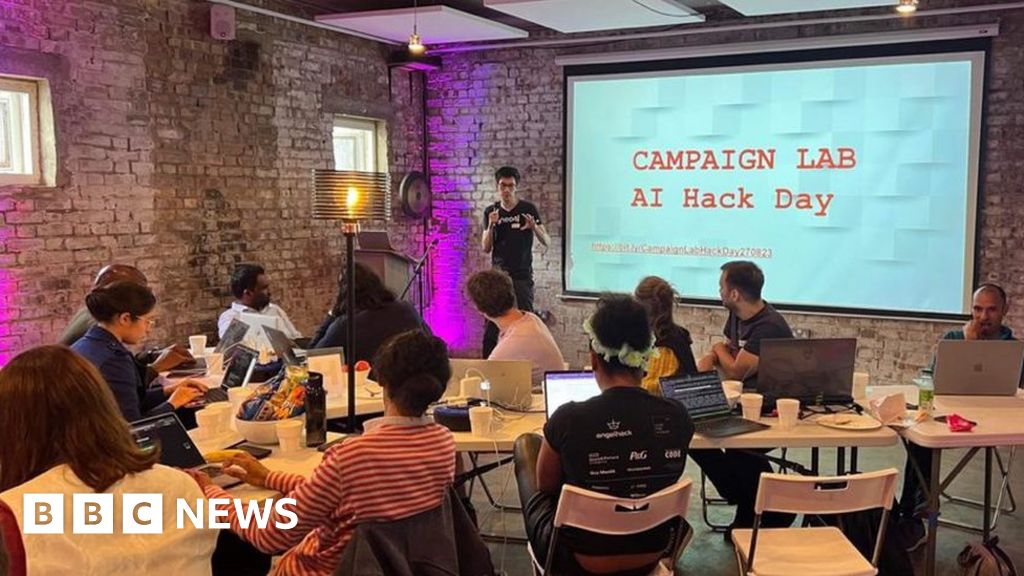
Unmasking the Power of Artificial Intelligence: Revolutionizing Democracy!
The advancements in technology have revolutionized various aspects of our lives, including the way we communicate, work, and even govern ourselves. One such development is the advent of Artificial Intelligence (AI), which has the potential to transform democracy as we know it. AI has already made significant strides in a wide range of fields, and its capabilities continue to expand.
Understanding Artificial Intelligence
Before delving into the ways AI is revolutionizing democracy, it is crucial to have a clear understanding of what AI actually is. In simple terms, AI refers to computer systems programmed to perform tasks that typically require human intelligence.
AI can be broadly categorized into two types: Narrow AI and General AI. Narrow AI, also known as Weak AI, focuses on specific tasks and is designed to excel in those areas. On the other hand, General AI, or Strong AI, aims to replicate human-level intelligence across a wide range of tasks. While General AI remains a future possibility, Narrow AI is already being integrated into various sectors, greatly impacting democratic processes and system.
The Role of AI in Revolutionizing Democracy
1. **Enhancing Decision-Making Processes:
AI, with its advanced algorithms and data analysis capabilities, has the power to transform decision-making processes in democratic societies. It can process vast amounts of information and identify patterns that humans may overlook. By providing valuable insights and predictions, AI can assist policymakers in making informed decisions that benefit the society at large.
An example of this is predictive analytics used in election campaigns. AI algorithms analyze voter data and behavioral patterns to anticipate voter preferences and tailor campaign strategies accordingly. Additionally, AI can help governments identify inefficiencies in public services, optimize resource allocation, and improve overall governance.
2. **Strengthening Civic Engagement:
AI has the potential to enhance citizen participation and engagement in the democratic process. Through its intelligent algorithms, AI can process and present information in a manner that is easily comprehensible to individuals, including high school students. This empowers citizens to stay informed and participate actively in political and social issues that shape their lives.
Moreover, AI-powered chatbots and virtual assistants can improve accessibility to information, serving as virtual guides that address citizens’ queries and concerns. By bridging the gap between citizens and governance, AI fosters a transparent and inclusive democratic environment.
3. **Efficient Policy Formulation:
The formulation of sound policies is crucial for the sustainable development of any democratic nation. AI can significantly streamline this process by analyzing vast amounts of data, exploring various scenarios, and identifying potential outcomes. By simulating the impact of different policies, AI helps policymakers make data-driven decisions.
Furthermore, AI can assist in combating the issue of fake news and misinformation, which has become a significant challenge in the digital age. AI algorithms can analyze the credibility of news sources and detect false or misleading information, enabling citizens to make well-informed decisions.
The Challenges and Ethical Considerations
While the potential benefits of AI in revolutionizing democracy are immense, it is essential to address the challenges and ethical considerations that come with it. Here are a few key areas of concern:
Inequality:
The widespread implementation of AI in democratic processes must not exacerbate existing inequalities. It is crucial to ensure equal access and opportunities for all citizens to benefit from AI advancements. Governments and policymakers must carefully consider the potential impact on marginalized communities, close the digital divide, and prevent AI from becoming a tool for enhanced surveillance or social control.
Security and Privacy:
As AI handles vast amounts of sensitive data, it poses significant security and privacy risks. Governments and organizations must prioritize the development of robust security measures to protect individual data from unauthorized access or malicious use. Transparency and accountability are key to maintaining public trust in AI systems.
Ethical Framework:
The use of AI in democracy must be guided by a comprehensive ethical framework. Clear guidelines, regulations, and oversight mechanisms should be established to define AI’s limits and prevent any breach of democratic values and citizen rights.
Conclusion
Artificial Intelligence has the potential to revolutionize democracy by enhancing decision-making processes, strengthening civic engagement, and enabling efficient policy formulation. However, it is crucial to address the challenges and ethical considerations that come along with its adoption. By leveraging AI’s capabilities responsibly and ensuring equality, security, and ethical practices, we can embark on a path towards a truly inclusive and optimized democratic society.
Key Takeaways:
Frequently Asked Questions
Source: insidertechno.com